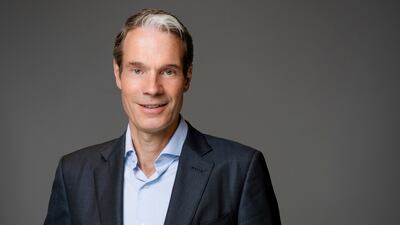Life depends on food, yet 828 million people in the world are unsure of where their next meal is coming from. What’s worse, this number is expected to grow as global conflict, rising costs, climate change and the ongoing economic impact of the COVID-19 pandemic continue to ravage our global food system. The tragic truth is that the global food crisis has pushed more than 30 million children into acute malnutrition in some of the most vulnerable countries of the world, causing severely weakened immune systems and higher death risk.
Cited by the World Food Programme, the hunger crisis is particularly grim in the Africa, Middle East and South (AMESA) region, with Asia being home to the greatest number of undernourished people and Africa with the highest prevalence of undernourishment in percentage terms. In the Arab world, wherein most are observing Ramadan, more than 141 million people are exposed to food insecurity. Achieving food security is incredibly complex, with its multiple variables including population growth and rising food prices, everyone must collaborate to impact immediate and long term food needs. As a global food and beverage company with customers in more than 200 countries and territories, we must play a critical role in leveraging our global capabilities to achieve local impact to help realize zero hunger in the communities we live and work.
Our marquee ‘Food for Good’ programme led by PepsiCo Foundation has been doubling down on efforts to increase equitable access to nutritious food by increasing its own investments as well as offering three long- and short-term ways to address hunger needs: empower small-scale farmers (especially women) with productivity and incomes through sustainable farming, inspire food security through local partnerships, and increase access to nutrition for the most vulnerable with dignity. Long term programmes like, the over $5.7 million She Feeds the World programme with CARE has been supporting 880,000 farmers and their families across the AMESA region since 2018 with regenerative agriculture practices to tackle the root cause of hunger. Additionally, Food for Good also provides short-term meal relief programmes, providing immediate hunger relief to communities in need across the region. As a contributor to our Pep+ (PepsiCo Positive) commitments, PepsiCo Foundation’s meal security programmes, like the ‘Food for Good’ programme, has invested more than $5.5 million to deliver more than 30 million meals to over 1.2 million vulnerable people across the AMESA region, in support of local solutions that meet the unique challenges faced by each community.
The most recent and heartfelt initiative that comes to mind, galvanizing multi-stakeholder local partnerships, is the Filling Hearts initiative under the Food for Good banner. Activated during the Holy Month of Ramadan - when food is a pivotal experience, across Egypt, Iraq, Lebanon, Pakistan and Saudi Arabia and the UAE, the first-ever initiative offered 3 million meals to the most underprivileged segments. It was heartwarming to all PepsiCo associates, including the senior leadership, to gather together to either prepare or pack and distribute meals in partnership with local food banks.. Each food box contained a personalized, handwritten message from the PepsiCo associate packing the box.
While we saw PepsiCo associates in Egypt huddle at warehouses, offering 1.5 million meals through Al-Manfaz and the Egyptian Food Bank, associates in Pakistan hosted iftars for orphaned children, distributing over 1.2 million meals in partnership with Akhuwat Foundation. PepsiCo in Saudi Arabia, as part of its food basket programme with Saudi Food Bank (Eta’am), provided 150,000 meals and 200,000 Aquafina water bottles towards the Iftar Sayim project. In the UAE, PepsiCo partnered with Companies for Good to donate 400 meals and water/ beverage bottles at a labor camp to the community. In Lebanon, PepsiCo collaborated with the Lebanese Food Bank to offer over 90,000 hot meals and food boxes stocked by local producers, inclusive of water and juice.
This Ramadan saw PepsiCo strengthen its ongoing partnership with the Iraqi Children Foundation for the ‘Hope Bus’ education initiative for at-risk orphans and children living below the poverty line. Hope Buses are ordinary, used buses converted into colorful, child-friendly classrooms. The initiative has been providing vulnerable children in one of Baghdad's poorest neighborhoods with tutoring, nutritious meals, and psycho-social and health support, and gives them the joyful experience of childhood play. Two of the PepsiCo Foundation-funded buses ensured access to 22,500 meals and clean drinking water, paving the path for children to reach their full potential.
Apart from the Ramadan campaign and as part of our malnutrition interventions, PepsiCo and PepsiCo Foundation has been providing a healthy, nutritious start to the day for more than 30,000 children in 35 schools in some of the most vulnerable communities across 7 provinces in South Africa through the Pioneer School Breakfast Nutrition Programme in South Africa since 2015. Additionally, the PepsiCo Foundation has provided $250,000 (as of 2021) to the Nigeria Food Clique Fund to provide 600,000 nutritious meals to Nigeria’s hardest hit communities suffering from hunger. Understanding that collaboration is essential to scaling meaningful change, the PepsiCo Foundation has contributed to WFP through various programmes, including disaster relief and school meals bringing together industry peers, local and international organizations, and employees to achieve tangible social impact.
While Ramadan will soon come to an end, the giving must not stop there. To establish a sustainable platform with a lasting positive impact, it is important to keep connecting with communities across the globe all year long to understand and address their specific needs. Only that way can we reduce the systemic barriers they face and build a more equitable world for all.

